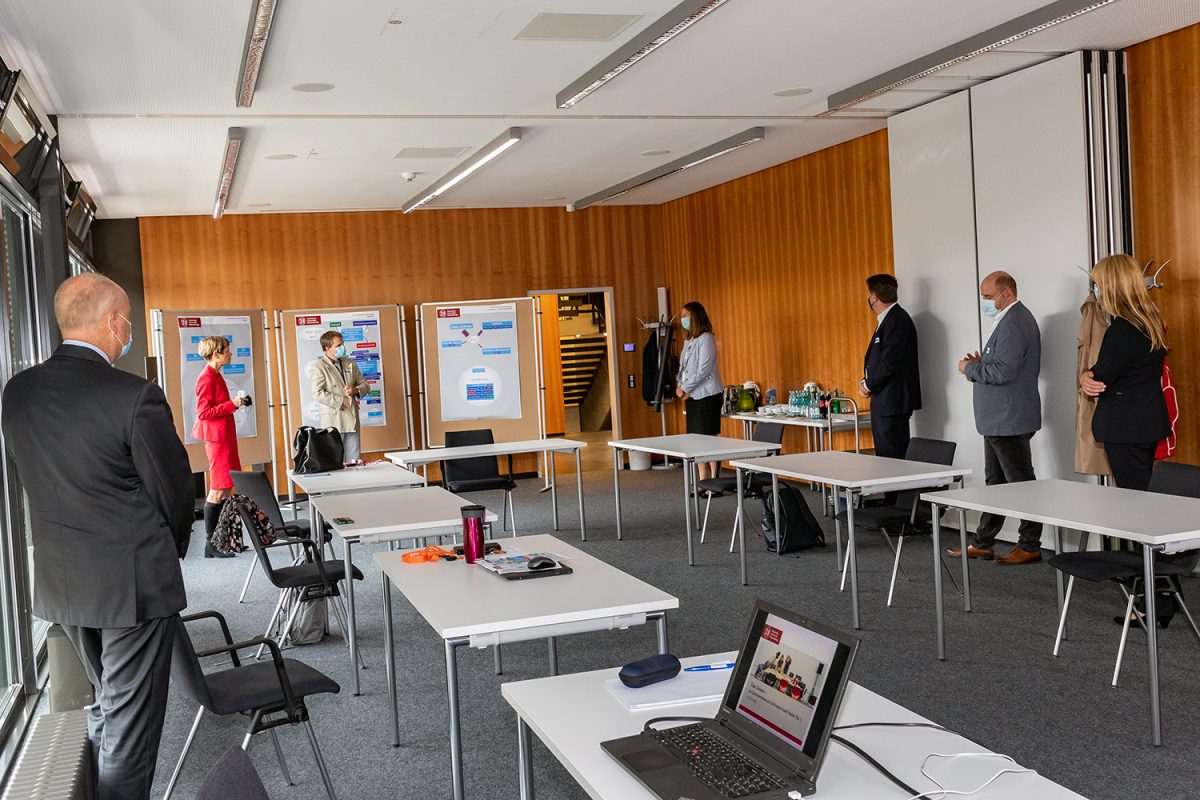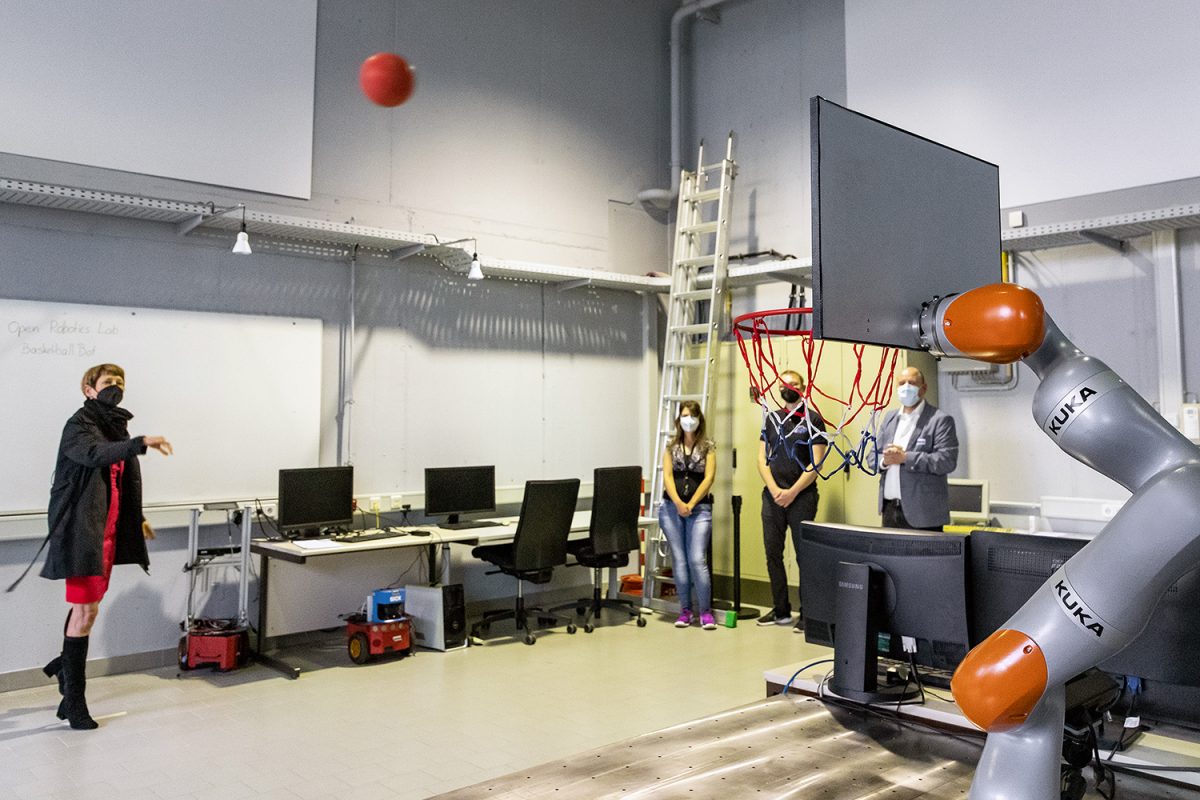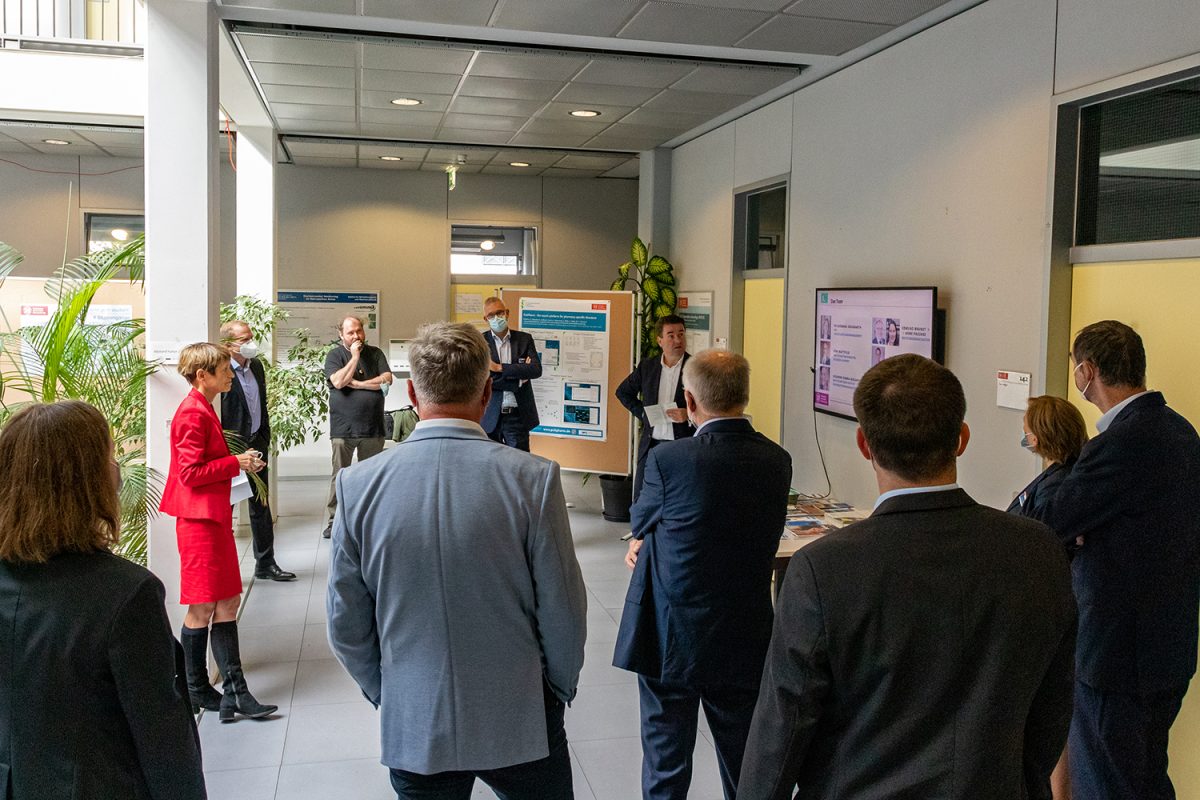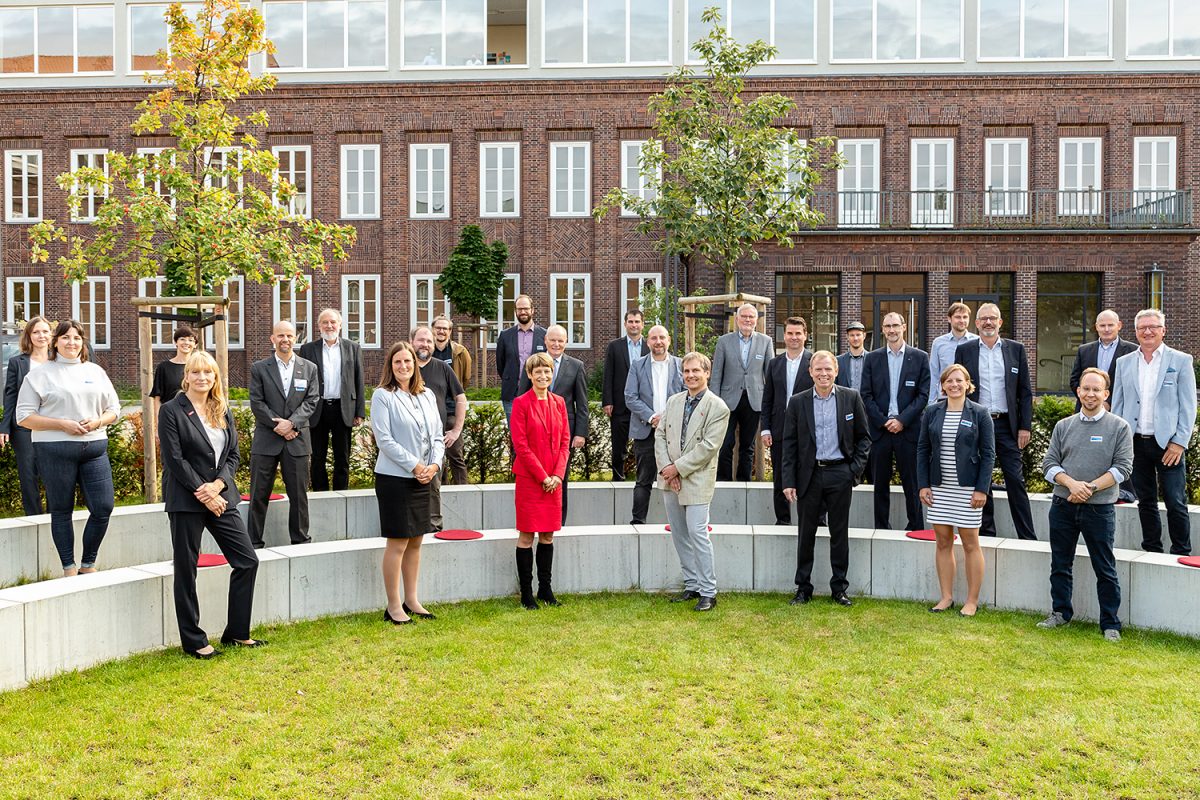Spotlight: A visit to Faculty 1, the Carl-Friedrich-Gauss-Faculty Topics and highlights of the president’s schedule
On September 13, 2021, our Faculty 1 offered me a wholistic overview of the Carl- Friedrich-Gauss-Faculty. I was greeted by Dean Professor Matthias Bollhöfer and the spokespersons of the four departments, Mathematics, Computer Science, Social Sciences and Business Science.
Professor Matthias Bollhöfer illustrated the diversity of the “cross-sectional faculty” and the active networking with study programs of all other faculties at the TU Braunschweig. A very special feature of the “Data Science Faculty” (Prof. Wolf-Tilo Balke) is the extensive experience in working with data, data collection, management and profitable evaluation. On this basis the master’s program “Data Science” was established, which combines mathematics, computer science and a broad application in research and teaching.
In a “tour of the table”, the five institutes within the department of Mathematics gave an overview of their work. Noteworthy is their close collaboration with the engineer department, for example in the core research area on “Mobility” and in the Cluster of Excellence SE²A. The department of Social Sciences also showed many potentials for the development of TU Braunschweig in the coming years, for example in international visibility, research in Science Communication and in the increasingly important integration of the Social Sciences in the formulation of Engineering Science research and the expansion of evaluation and supplementary research.
Next stop on the tour was the plaza at the Computer Science Center. In the impressive setting, I learned more about the largest, non-admissions-restricted degree program at TU Braunschweig – Computer Science. In the Open Robotics Lab, I competed – unsuccessfully – against a basketball bot that students developed using machine learning methods, among other things. Short lectures on computer science in Biomedicine and Realistic Image Synthesis underlined the claim of Computer Science in problem analysis, and problem solving.
I then had the pleasure to receive insight into the Economics team. They cover a wide range of research topics and are strongly involved in projects in the core research areas “Future City” and “Mobility”. Sustainability research is a particular focus. Especially interesting was the vision of a “Future Mobility Hub” that functions as a link between research and market application for innovations.
To round things off, we went to the courtyard at the “Haus der Wissenschaft” for coffee and cake. There I had another opportunity to talk to many different colleagues. I am already looking forward to more indepth discussions. Thank you very much for the insights! Special thanks to the Dean Professor Matthias Bollhöfer and the Managing Director of the Faculty, Ms. Imma Braun, as well as all participants of the tour.




